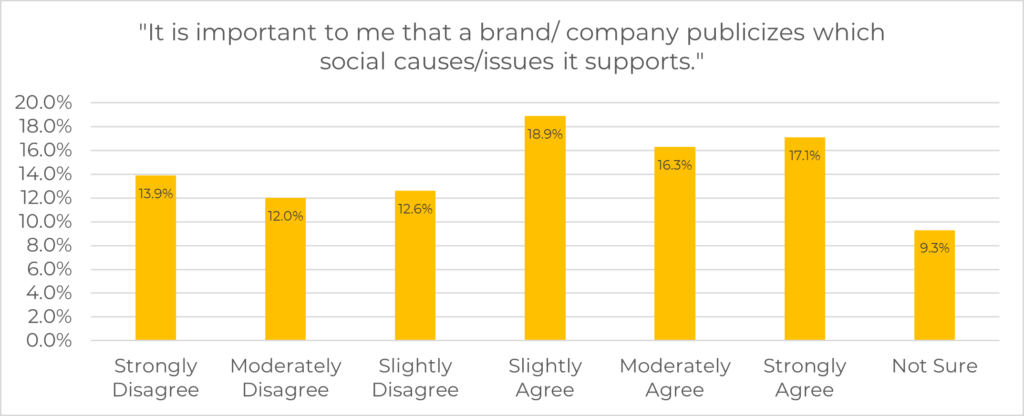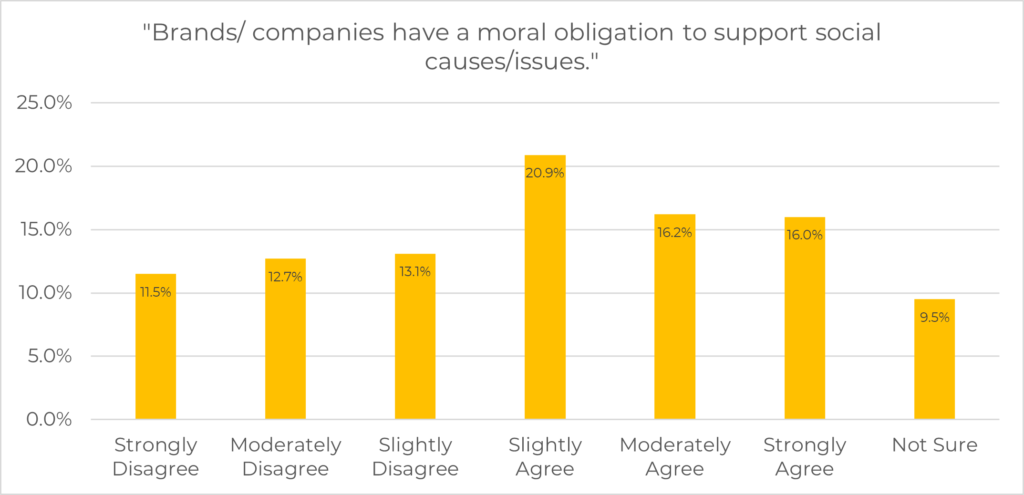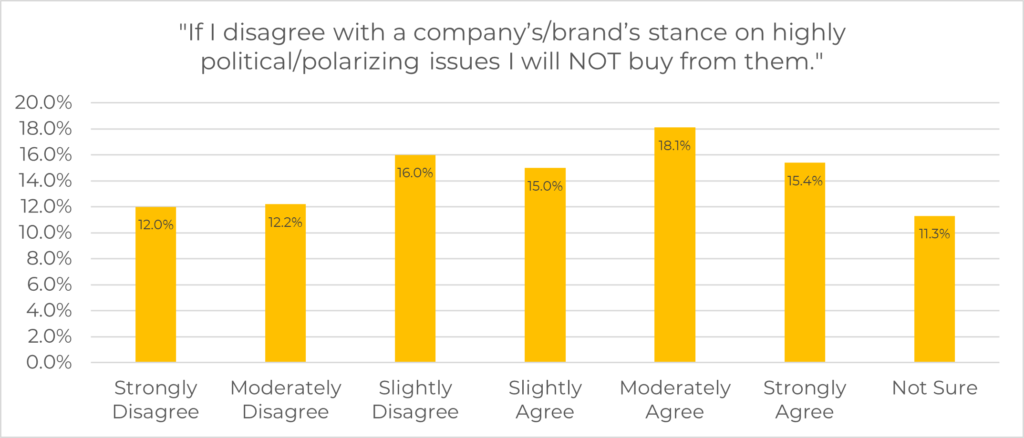Brand Values: Do Consumers Really Care?

Building a brand and establishing how it functions and communicates in the world is hugely important to any business. Companies attempt to align their brand with their target audience to, at the very least, appear authentic to the communities they serve and ultimately drive more sales of their product or service.
Branding has evolved over the years alongside consumers and what they care about, and some companies are now choosing to take a public stance in the world on social, political, and environmental matters. Whether the business sells toilet paper, energy drinks, cars or shoes, these brand values are taking on seemingly more importance than ever, but do consumers really care? Does a brand’s position on social causes, political issues and their corporate values sell more products?
In early February, we conducted a nationwide NuVoodoo Quick Turn Study of nearly 1,000 adults to ask them how important it is that brands align with their own personal values.
The respondents seem split when it comes to how important it is that brands publicize their values with approximately 52% saying that is at least slightly important they do so.

The same is true when it comes to whether businesses should have a moral obligation to support social causes/issues, with 52% again leaning “agree.”

Things get only slightly clearer when we get specific about the industries/categories a brand represents, with over 57% of respondents at least slightly agreeing with the statement that companies in categories like oil/gas, apparel, chemicals and cleansers are especially obligated to support causes that their industry could directly impact. Generally speaking, though, there is simply not a lot of compelling evidence in this study to support the idea that brand values significantly drive purchase consideration.
Even when values misalign, we’re not seeing a huge impact on consumer sentiment. In fact, only a little over 15% of people surveyed strongly agreed that if a brand’s stance on highly political/polarizing issues was something they disagreed with, they would not buy from them.

It seems that while there is a lot of discussion regarding the importance of brand values, particularly as they relate to their impact on purchase consideration, we see no compelling evidence that this is a driving factor. This isn’t to say that brands should exist without values. A company’s internal values can help drive hiring and growth in other ways, and many have succeeded through niche marketplaces because of their value set. But publicizing those values in an attempt to impact sales is likely to only work for a small set of consumers, at least for now.




